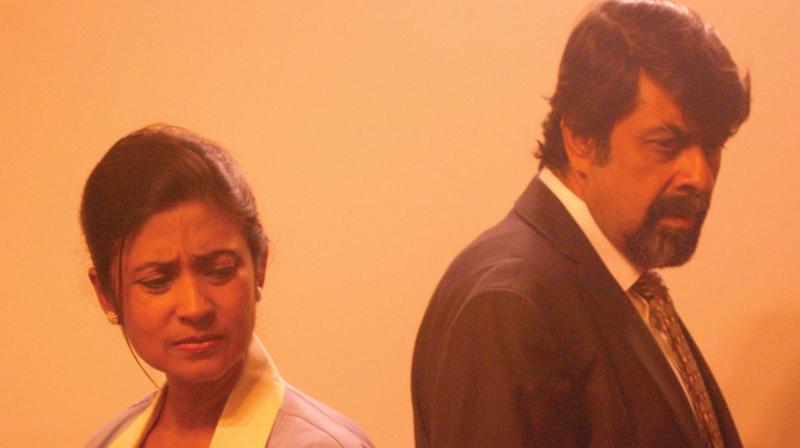Dissecting the doctor

A Judgmental Error is an English translation of a Bengali script originally written by Nirup Mitra. It is set in the context of a nursing home and builds on a surgery which is debated on its merit and judgment, opening up the medical profession for deep introspection.
Susanto Banerjee, director, translator and founder of Ventures, explains the idea of the play, “It’s about the medical profession, with reference to those decisions and judgments that doctors take spontaneously, that are clinically debatable. As surgeons get more experienced, they tend to see a patient like a machine whose parts they are fixing, ignoring emotions and the fact that there is a valuable life attached to this body. The plot opens up the debate where a judgement made by the doctor is discussed till the end and it is left to the audience to take a call.”
Mohua Sengupta, an artiste and co-founder of Ventures, share the challenge in this journey, “Since we wanted every detail of the play right, we had a task finding skilled actors. After several levels of scrutiny, we managed to find an exceptional ensemble of 15 passionate actors.”
Speaking a little more on how they wish to address the issue of patients questioning doctors’ abilities, Mohua elaborates, “We want to reinstate faith in doctors. Sometimes, the life of a patient depends on the one judgement he/she makes. It can be right or wrong. However, while most doctors make that call based on necessity, a few corrupt ones tend to take a call based on money. We can’t tell the right decision from the scandal.”
The play is a fictional, thrilling drama, which decides the destiny of a girl based on a judgement made by a certain doctor. The drama includes an original background score by Gerry Ambrose, lights that almost have emotions of their own and powerful, thought-provoking dialogues to keep the audience glued to their seats.
Giving us an insight about the stage set up, Mohua says, “It’s elaborate, with several props related to a hospital. The story is fast paced, and there is a change on stage for every act.”
When asked about what was the intention behind producing this play with such a sensitive story line? Susanto replies, “This is only a form of storytelling. The goal is to tell the story and leave the conclusion with the audience to understand and ponder upon. We want the audience to understand the play from their hearts and later analyse it with their brain. People in our country consider doctors as demigods. We only want to show them that doctors are human beings as well and can utilise their knowledge in different ways.”
He hopes that it will also give food for thought to doctors. “If, to our luck, we have doctors in the audience then we only want them to understand that it’s not just about the body, it’s about the life attached to it,” he avers. Of course, he also emphasises, “Doctors are very important and we have no intention to demean their practice. We only want them to be a little more connected and understand that lives depend on the decisions they make.”
Now that’s quite the prescription for the medical fraternity!

